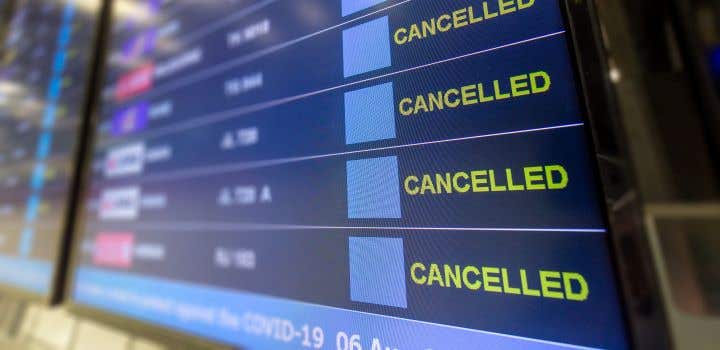Human cost of COVID travel restrictions revealed in new study
Stories reveal the emotional toll of prolonged separation across geographical distances when loved ones are no longer ‘just one flight away’

[Dec 17, 2021: University of East Anglia]
Stories reveal the emotional toll of prolonged separation across geographical distances when loved ones are no longer ‘just one flight away’. (CREDIT: Getty Images)
New research shows the high human costs and negative impacts of border closures and travel bans during the Covid pandemic for ‘transnational’ individuals and families whose lives span different countries.
The stories shared in the study, conducted by Dr Irene Skovgaard-Smith at the University of East Anglia, reveal the emotional toll of prolonged separation across geographical distances when loved ones are no longer ‘just one flight away’.
Participants from more than 25 countries talked of being “trapped”, “stuck” or “stranded” in a state of limbo and endless uncertainty because of the international travel, border- and entry-restrictions introduced by many nations around the world during the pandemic.
The measures have affected a variety of groups whose lives span territorial borders, such as migrants, families, long distance couples and international students.
The findings, published in the journal Global Networks, come as the issue of travel restrictions and entry requirements have again become the focus of debate in recent weeks with the emergence of the Omicron variant.
While the UK government has now removed all countries on the red list, temporary testing measures for international travel remain, and other countries still have entry restrictions in place.
Related Stories
Very little attention has been paid to the negative consequences of these measures on people’s lives and wellbeing, with Dr Skovgaard-Smith’s study being one of the first to examine them. She said the aim was to give a voice to the experiences of cross-border immobility and to address the urgent need for research on the social impacts.
“Beyond the early stages of the pandemic, border restrictions and entry bans evolved in differing ways across nation states throughout 2020 and 2021, some becoming increasingly bewildering and disproportionate,” said Dr Skovgaard-Smith, an anthropologist in UEA’s Norwich Business School.
“Running through the stories in this study are intensified experiences of foreignness, non-belonging, precariousness and discrimination, of having no voice. Some people also felt abandoned by their country of origin as border closures left them ‘locked out’ and ‘blowing in the wind’, fostering an experience akin to exile.
“Those most affected were left in a prolonged state of limbo, separated from loved ones for 18 months or more, and faced a range of threats to their transnational lives and well-being, as well as their livelihoods because of issues with visas and employment.”
The research was carried out virtually from May 2020 to May 2021 and involved collecting stories via in-depth interviews and a survey.
Dr Skovgaard-Smith said: “The approaches of New Zealand and Australia, for example, are often praised with no regard for the human costs of nearly two years of closed borders. Travel restrictions have generally enjoyed broad political support, and often the focus is mainly on tourism and holidays when travel restrictions are debated.
“However, this research is important as an early study of some of the severe consequences of the pandemic for those who live their lives across national borders.”
Commenting on the decision to remove all 11 countries from the UK travel red list this week, Dr Skovgaard-Smith added: “Many of those affected will experience a huge sense of relief and hope that they will now be able to reunite with their families for Christmas, in some cases after several years of separation. It is also a great relief for many others who feared that more countries could be added to the red list with short notice.
“Nation states keeping their borders closed will not solve the pandemic at this stage and carries significant economic, diplomatic and human costs. The World Health Organisation thus advises against travel restrictions. International co-operation and vaccine equity is the only way forward.”
‘Transnational life and cross-border immobility in pandemic times’ is published in the journal Global Networks.
Note: Materials provided above by University of East Anglia. Content may be edited for style and length.
Like these kind of feel good stories? Get the Brighter Side of News' newsletter.
Tags: #New_Discoveries, #Research, #COVID_19, #Science, #Travel, #Global_News, #Psychology, #The_Brighter_Side_of_News



